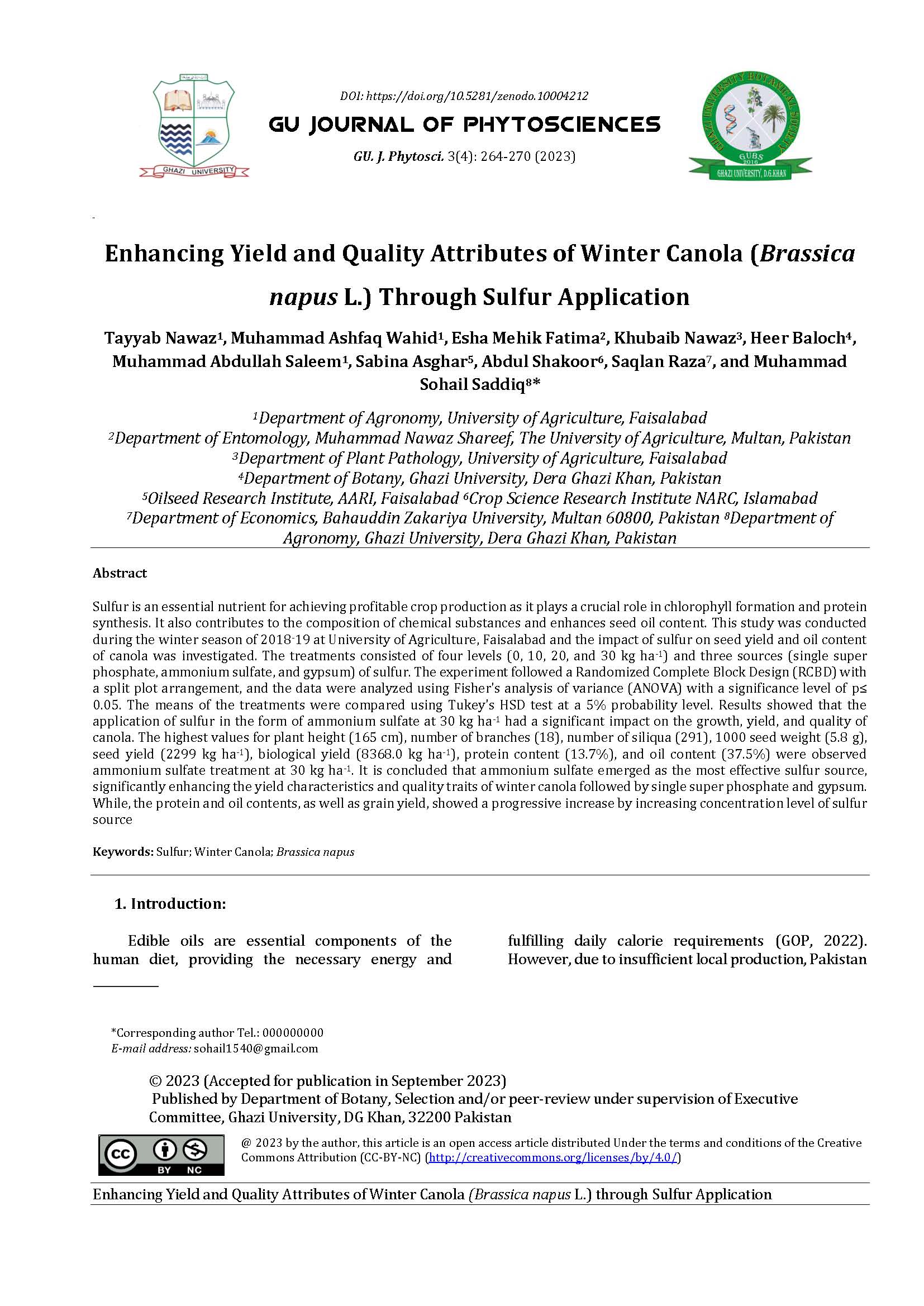Enhancing Yield and Quality Attributes of Winter Canola (Brassica napus L.) Through Sulfur Application
Keywords:
Sulfur, Winter Canola, Brassica napusAbstract
Sulfur is an essential nutrient for achieving profitable crop production as it plays a crucial role in chlorophyll formation and protein synthesis. It also contributes to the composition of chemical substances and enhances seed oil content. This study was conducted during the winter season of 2018-19 at University of Agriculture, Faisalabad and the impact of sulfur on seed yield and oil content of canola was investigated. The treatments consisted of four levels (0, 10, 20, and 30 kg ha-1) and three sources (single super phosphate, ammonium sulfate, and gypsum) of sulfur. The experiment followed a Randomized Complete Block Design (RCBD) with a split plot arrangement, and the data were analyzed using Fisher's analysis of variance (ANOVA) with a significance level of p≤ 0.05. The means of the treatments were compared using Tukey's HSD test at a 5% probability level. Results showed that the application of sulfur in the form of ammonium sulfate at 30 kg ha-1 had a significant impact on the growth, yield, and quality of canola. The highest values for plant height (165 cm), number of branches (18), number of siliqua (291), 1000 seed weight (5.8 g), seed yield (2299 kg ha-1), biological yield (8368.0 kg ha-1), protein content (13.7%), and oil content (37.5%) were observed ammonium sulfate treatment at 30 kg ha-1. It is concluded that ammonium sulfate emerged as the most effective sulfur source, significantly enhancing the yield characteristics and quality traits of winter canola followed by single super phosphate and gypsum. While, the protein and oil contents, as well as grain yield, showed a progressive increase by increasing concentration level of sulfur source.

Downloads
Published
How to Cite
Issue
Section
License
Copyright (c) 2023 The Authors

This work is licensed under a Creative Commons Attribution-NonCommercial 4.0 International License.
All works published by the GU Journal of Phytosciences are freely available to copy, distribute, transmit, and adapt the work provided the original work and source are appropriately cited under a CC BY-NC 4.0 International License. The CC BY-NC licence allows for maximum re-use of open-access materials, and the author has full copyright over their publication. Under this license, users are free to share (copy, distribute, and transmit) and adapt for any purpose, but not for any commercial use (read full legal code).
Under Creative Commons, authors retain copyright in their articles.



